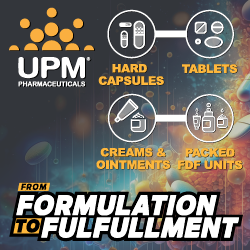ZIOPHARM Announces Successful End-of-Phase II Meeting With FDA
ZIOPHARM Oncology, Inc. recently announced the receipt of positive guidance from an End-of-Phase II meeting with the US FDA for its lead gene therapy product candidate, Ad-RTS-hIL-12 plus orally administered veledimex (V), to harness and control IL-12 production for the investigational treatment of recurrent glioblastoma (GBM), an aggressive form of brain cancer with few treatment options.
“We are pleased with our productive interactions with the FDA and the valuable direction we received at the End-of-Phase II meeting. Our controlled approach utilizing the RheoSwitch platform represents the next-generation of gene therapy enabling IL-12 to be regulated through a transcriptional switch. We appreciate the FDA’s feedback surrounding our plans to advance Ad-RTS-hIL-12-based therapy to a pivotal registration study for patients with recurrent GBM in 2017 and look forward to establishing the benefits of this novel therapeutic approach,” said Laurence Cooper, MD, PhD, Chief Executive Officer of ZIOPHARM.
“The median overall survival remains very promising and continues to be greater than 12 months for these heavily compromised patients,” added Francois Lebel, MD, Chief Medical Officer of ZIOPHARM. “After positive meetings with both FDA and European regulators, the company is working toward finalization of the optimal pathway for our pivotal trial for Ad-RTS-hIL-12 + veledimex.”
In collaboration with its investigators and regulators, the company is currently assessing its protocol design options for the pivotal trial, including the potential for a single-arm study comparing Ad-RTS-hIL-12 + V to historical controls in a subpopulation of patients with recurrent GBM. Details of the pivotal Phase III trial will be made available following evaluation and completion of discussions with clinical advisors as well as regulators.
GBM represents approximately 15% of all primary brain tumors and remains a high unmet clinical need that affects roughly 74,000 people worldwide annually. GBM is an aggressive form of brain cancer with recurrence rates near 90%, and prognosis for patients is poor with treatment often combining multiple approaches including surgery, radiation, and chemotherapy. Median overall survival (OS) is only 6 to 7 months in patients who have experienced multiple recurrences, and the prognosis is even poorer for patients who have failed temozolomide and bevacizumab, or equivalent salvage chemotherapy with a median OS of approximately 3 to 5 months.
ZIOPHARM Oncology is a Boston, MA-based biotechnology company employing novel gene expression, control, and cell technologies to deliver safe, effective, and scalable cell- and viral-based therapies for the treatment of cancer and graft-versus-host-disease. The company’s immuno-oncology programs, in collaboration with Intrexon Corporation and the MD Anderson Cancer Center, include chimeric antigen receptor T cell (CAR-T) and other adoptive cell-based approaches that use non-viral gene transfer methods for broad scalability. The company is advancing programs in multiple stages of development together with Intrexon Corporation’s RTS technology, a switch to turn on and off, and precisely modulate, gene expression in order to improve therapeutic index. The company’s pipeline includes a number of cell-based therapeutics in both clinical and preclinical testing which are focused on hematologic and solid tumor malignancies.
Total Page Views: 1321












